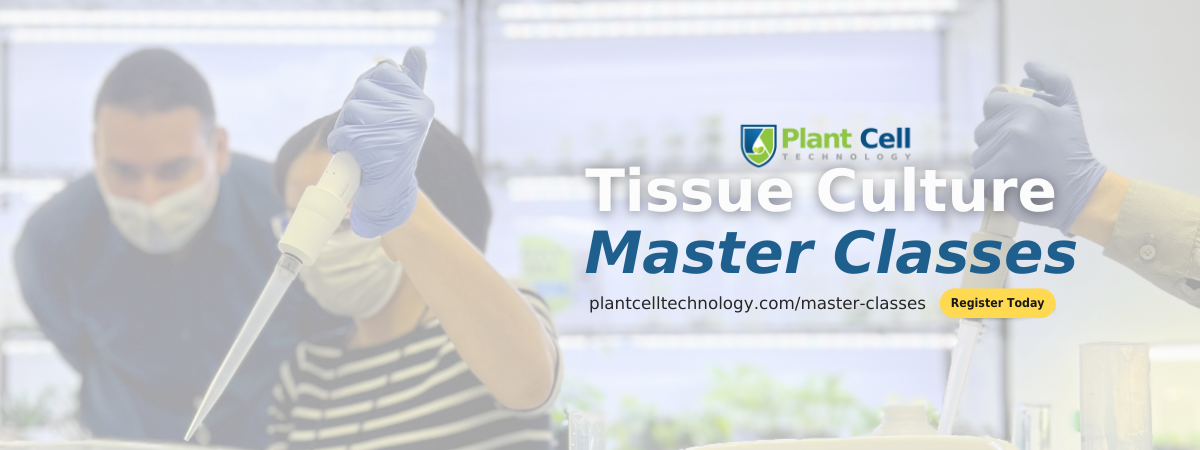
Seed Propagation: What Do You Know?
As a content and community manager, I leverage my expertise in plant biotechnology, passion for tissue culture, and writing skills to create compelling articles, simplifying intricate scientific concepts, and address your inquiries. As a dedicated science communicator, I strive to spark curiosity and foster a love for science in my audience.


Introduction
Plant propagation is defined as the reproduction or multiplication of plants. The ancient and natural method of growing plants is through seeds. However, because of the commercialization of crops, various techniques have been developed to serve the purpose, such as cutting, grafting, layering, and tissue culture.
But, among all these techniques, seed propagation is one of the most commonly and extensively used techniques used by farmers and growers. Additionally, it’s the most affordable approach to growing plants. The technique is considered to be a good way to produce virus-free plants as most of them do not get transferred through seeds.
Seed propagation is a sexual reproduction technique. In this approach, seeds are formed by fertilization between the gametes of parents. The pollen nuclei fuse with the egg of the ovary to form the zygote. Then, the formed zygote further divides and develops into an embryo.
In this article, we will learn about the advantages and disadvantages of seed propagation and how the demerits of the technique can be overcome.

Advantages of Seed Propagation
Here’re some advantages of seed propagation:
- The most common and easy technique to propagate plants.
- It has increased genetic variations which facilitates the formation of superior-quality hybrid plants.
- An effective technique to produce virus-free plants.
- An efficient approach to storing plants for a long period of time.
- It’s an affordable technique for all the propagation methods.
- It offers an effective approach to transportation.
- Seeds can be stored for a longer period of time for the propagation of plants. However, the longevity and storage conditions differ based on the plant species.
- Plants grown using seeds are longer-liver and more tolerant to climate changes and diseases.
- It’s an effective approach to growing plants that can’t be grown using asexual methods, such as papaya, coconut, and phalsa.
- It’s the biggest source of rootstock required for asexual reproduction.

Disadvantages of Seed Propagation
The seed propagation technique has also some disadvantages over its merits. It includes:
- Seeds generated through cross-pollinated plants cause genetic variations because of their heterozygous nature. This phenomenon results in progenies or plant generations having undesirable traits.
- A plant grown using seeds need a long time to reach maturity. For example, potatoes grown using seeds do not breed true and produce large tubers the first year.
- Producing plants from seeds totally depends on climate conditions.
- Seeds often require some chemical or mechanical stimulants to stimulate plant germination.
- Seeds of some plants, such as mango, citrus, cashew nut, papaya, jackfruit, and Jamun, are required to be sown immediately after fruiting as they lose viability over time.
- Growing plants through seeds do not assure the genetic purity of their offspring.

How Can You Overcome The Disadvantages of Seed Propagation For Commercial Production?
Growing plants using seeds is not a solution to commercial problems. If you’re looking for an approach to produce plants on a larger scale and boost your plant business, seeds won’t be an effective option.
Then which method can be an efficient approach to boost the profit of your plant business?
The tissue culture technique.
Tissue culture is an advanced method of growing plants in vitro using a few tissues or cells of plants. You need to maintain complete aseptic conditions while introducing plants to tissue culture. And, as the technique is performed in aseptic lab conditions, it reduces/eliminates the chances of producing diseased plants.

The technique offers even more advantages:
- Produce true-to-type plants
- Increase plant yield
- Produce plants rapidly on a large scale
- Produce hybrid plants
- Obtain disease-free plants
- Do not depend on climate conditions or seasons to grow a plant
- Produce plants on a commercial scale in small space
- Store plants for a long time without losing their viability
And many more!
May plant businesses are incorporating/incorporating the technique into their business model to increase revenue by producing plants that customer desires. Even some pharma companies producing secondary metabolites for medicinal purposes have adopted the technique to increase the concentration of secondary metabolites in plants.
How Can You Learn Tissue Culture and Incorporate It In Your Plant Business?

We can help!
Seed propagation is an ancient technique and with increasing plant demands, you need a technique that can help you to generate the desired revenue from your business. And, it’s tissue culture.
And, if you are a plant enthusiast or an established business needing help with tissue culture, we’re here!
Plant Cell Technology is a leading company in the tissue culture area. We supply a range of comprehensive solutions and products to ease your tissue culture journey and make your lab more productive than ever.
If you are interested in learning about tissue culture, we have Master Classes curated based on your need. All our classes are designed to train and prepare you to launch your business big and make space for yourself in the ever-expanding plant market. All the classes are led and taught by an experienced instructor of the area, who gives you hand-on-training on the technique, handling plants, and maintaining septic techniques, and teaches you mistakes you should avoid while incorporating the technology into your business.
Interested in our master classes? Check out our upcoming ones on this link!
Furthermore, our store contains a range of products you require to perform your tissue culture experiments, starting from MS media, Agar, PPM™, Plant hormones, and gellan gum. Further, we also provide a unique and simplest bioreactor—The Biocoupler™— for rapid and healthy multiplication of your plants.
If you are stuck in your tissue culture stage and need quick help, we have the consultation you need! Just book your appointment with us and our tissue culture expert will help you with all your queries in a one-on-one video call.
So, if you need anything to grow your plant business using tissue culture, we have everything to streamline and ease your process.
Have any questions for us? Contact at info@plantcelltechnology.com and we will get back to you to resolve all your queries.
Happy Culturing!!
Blog Categories
View by Level
Popular Blogs

The Science of Better Multiplication and Rooting in Tissue Culture
Every tissue culture hobbyist or professional eventually hits a plateau. You have a protocol that works, you have your medium...
Read More
How MSAP Tracks the "Invisible Stress" of Plant Tissue Culture
In plant tissue culture, researchers often encounter a phenomenon where regenerated plants do not resemble the donor plant, despite being genetic...
Read MoreSubscribe to Our Newsletter









Join the conversation
Your email address will not be published. Required fields are marked